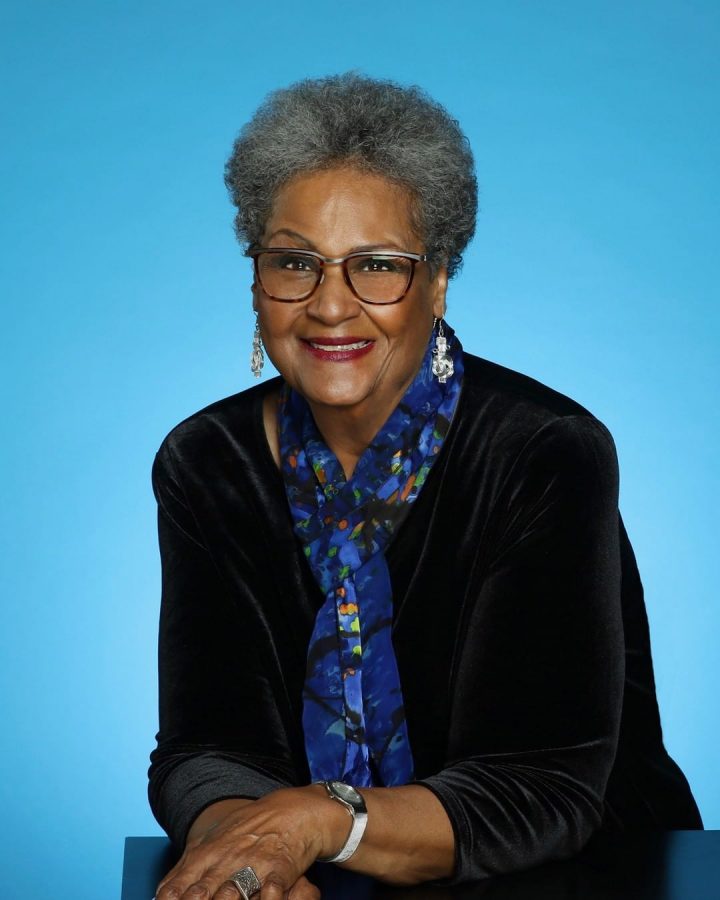Q&A: Rose Cannon of Cannon Fine Art Gallery talks art, reparations
Rose Cannon is the owner of Cannon Fine Art Gallery and is a leader in reparations work.
May 18, 2021
After retiring from government service in 2016, Rose Cannon wanted to make her days meaningful. In June 2019, she created Cannon Fine Art Gallery, Evanston’s first and only art gallery dedicated entirely to representing artists of color. Alongside the gallery, which is currently entirely virtual, Cannon is a self-described abolitionist and has been vocal against Evanston’s approach to reparations. The Daily sat down with Cannon to talk about the intersection of the gallery and reparations.
This interview has been edited for clarity and brevity.
The Daily: What inspired you to start the gallery?
Cannon: I was taking these art classes, and at the same time, an entrepreneurial class. About two weeks into the course, they insisted you state which business you wanted to go into. I was there for the wrong reason — I have two adult sons that need to start their own businesses but they were too lazy and said, ‘Mom, you go and you find out what we need to do.’ The instructor said I couldn’t do that and it had to be a business I wanted to start. I thought and thought about what gives me pleasure as she went around the room and decided I want to do an art gallery. Everybody in the class clapped.
The Daily: How do you pick the pieces you show at the gallery?
Cannon: For the show we are organizing right now at the Noyes Cultural Arts Center, we wanted to do a theme of ‘when we were kings.’ We wanted to show artists that make the kind of artwork that predates the stuff that is being shown around here. ‘When we were kings’ won’t be the name, but it’s the concept we are toying with. A show that will portray a kind of art that will bring you back before we were enslaved.
The Daily: What inspired your recent collection about stories from the soul?
Cannon: That was our first show in 1100 Florence Gallery. One woman in our group of five was a ceramicist and she came up with the name Soulworks. It caught on immediately with us, and that’s how I identified some of my artists. The name has stuck with us all this time.
The Daily: What has the reception been like and how has that been meaningful to you?
Cannon: I love my group of artists, and it seems to be working. Everybody that comes to me says they find it to be beautiful, and the way I’ve pulled together the different artists has been complimented. What’s special about it to me is when I’m doing that work, I feel really fulfilled and refreshed. It’s not nearly as hard as doing reparations work.
The Daily: Can you tell me a little bit about the work you’re doing for reparations?
Cannon: I’m in the initial group that said we are going to resist the Evanston reparations plan because it is not true reparations. What is being said is not true reparations, so either the name needs to be taken off of it or do something else with it. We’ve gotten pushback because they think we are a small, angry group that doesn’t have a voice and are not substantial. But we are increasing our membership and we are becoming a full group with a full website.
The Daily: How does the work you do regarding reparations relate to the gallery?
Cannon: There was a need in the Evanston area to show Black artists. The Evanston Art Center is progressive and we’ve done shows, but the bottom line is I wanted to do something where only my people were being shown and only their artwork. Sometimes I need to step back and think, ‘Am I being too active in reparations?’ One of my artists really doesn’t like it, and he believes my social justice stance is in conflict with trying to sell art. But his patron base are white people so he doesn’t want to upset them. I’m not so concerned with that. I would love to be able to sell to everybody, but the bottom line is, if you don’t like my politics — too bad. I’m still going to do my politics.
Email: rebeccaaizin2023@u.northwestern.edu
Twitter: @rebecca_aizin
Related Stories:
— How art helps sustain mental wellbeing during COVID-19
— Community members reflect on sexual freedom in Northwestern Sex Week art gallery



